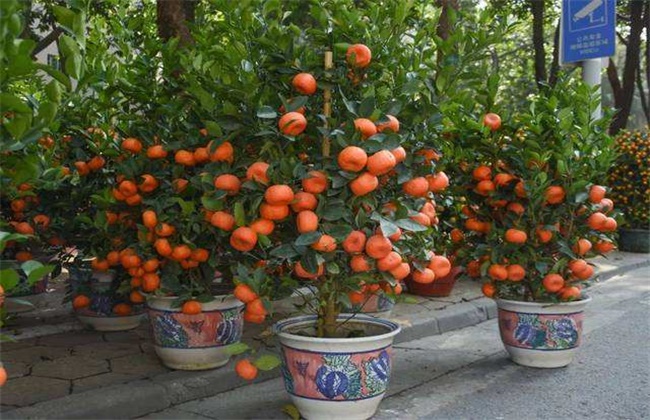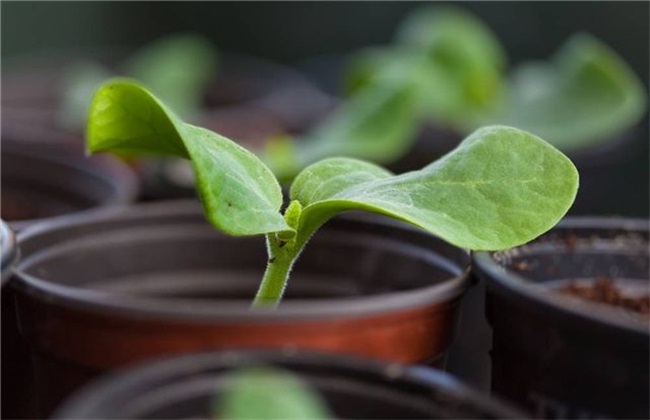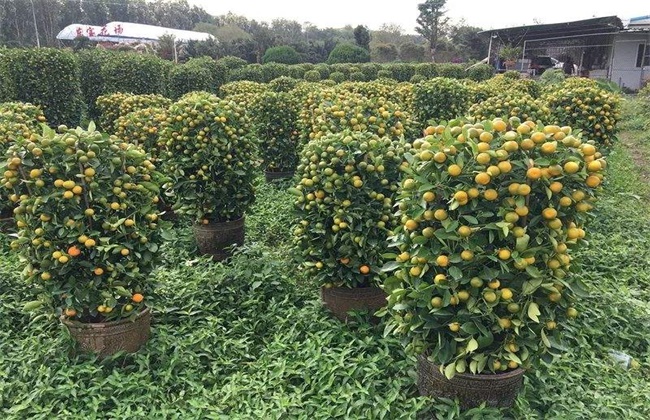Planting techniques of tangerine
Nian tangerine, also known as lobular tangerine, the orange tree is an evergreen shrub with a round crown, upright branches and dense branches. It is a good gift for people to get their heads on New year's holidays and for good luck. It has the advantages of strong shade tolerance, strong reversibility and extensive resistance. Orange fruit has the advantages of large shape, golden color, bright and delicious, resolving phlegm and relieving cough, clearing heart and moistening lungs, nourishing beauty, promoting digestion and high root system, and the peel also has medicinal value. So how to grow tangerines? Let's get to know it.

1. Choose a place to build a garden
Tangerine planting requires deep soil, the soil pH value is between 5.5 and 7, and the topography of the orchard is less than 25 degrees. The planning of the orchard is that there should be roads, drainage and irrigation, and several small points should be paid attention to when setting up the garden in places with good traffic and water sources. First, we should pay attention to the planting time, generally planting in November after autumn shoots mature or before spring shoots sprouting in February-March, and planting in a reasonable and close manner, generally using the density of 3m × 4m row spacing. Before planting, it is necessary to dig holes and apply fertilizer to ensure the growth of young trees. during planting, the roots of seedlings are appropriately trimmed and placed in the center of the planting holes, stretch the roots, straighten them, gently lift the seedlings upward while filling the soil, so that the roots are closely connected with the soil, and then pour enough water to fix the roots.
2. Fertilization
Generally, tangerines bear fruit in three years, and the fruiting time is usually in August, when the fruit expands rapidly and requires a great amount of water and fertilizer, so it is necessary to re-apply strong fruit fertilizer to the plants with more fruit and yellowing leaves due to lack. Generally, 1-2 jin of compound fertilizer or 0.2 jin of urea were applied to each plant, 1-1.2 meters long circular fertilization ditch was dug outside the crown drip line, and 1 jin of compound fertilizer and 0.2 jin of urea were applied to each adult tree. When the autumn shoot grows to 8-10 cm, 0.3 jin of phosphorus and potassium compound fertilizer is applied to each plant to promote the maturity of the autumn shoot.
3. Irrigation to fight drought
Autumn temperature is higher, the light time is longer, and it is still strong light, so it is best to cover the ground, heat preservation and moisturizing, can cover 10-15 cm thick straw or weeds around the tree plate. In the autumn drought, when there is no Rain Water for a long time, irrigation should be carried out in time, the best irrigation time is in the morning and evening, at the same time, autumn is a typhoon-prone period, we should pay attention to dredge the drainage ditch in time before the typhoon, so as to avoid stagnant water and rotten roots.
4. prevention and control of diseases and insect pests
8-10 is not only the high temperature season, but also the peak period of the occurrence of orange diseases and insect pests, at this time, there are many diseases and insect pests, so we should check them frequently, control them in time, and try to produce high-efficiency, low-toxicity and low-residue pesticides. Also pay attention to the alternate use of agents to avoid drug resistance.
With the introduction of last year's orange planting technology, I hope it can help you. If you want to know more about it, please follow us.
Related
- Moge, come on! The staff of the peasant association in the producing area of cantaloupe were frightened when the crowd gathered.
- Causes and Solutions of low Fruit setting rate of Apple
- Symptoms and control measures of passion fruit virus disease
- Fruit growing lesson: how do apple orchards keep high yields?
- Can you build orchards in the mountains? What are the pros and cons?
- How to manage the coloring period of Crisson grape?
- This paper introduces the processing technology of two kinds of fig products.
- How much is a month for retired teachers in rural areas by 2020?
- How can strawberry planting increase sugar content? We should pay attention to management in many aspects.
- What are the cultivation techniques on how to improve the yield of golden fruit?



